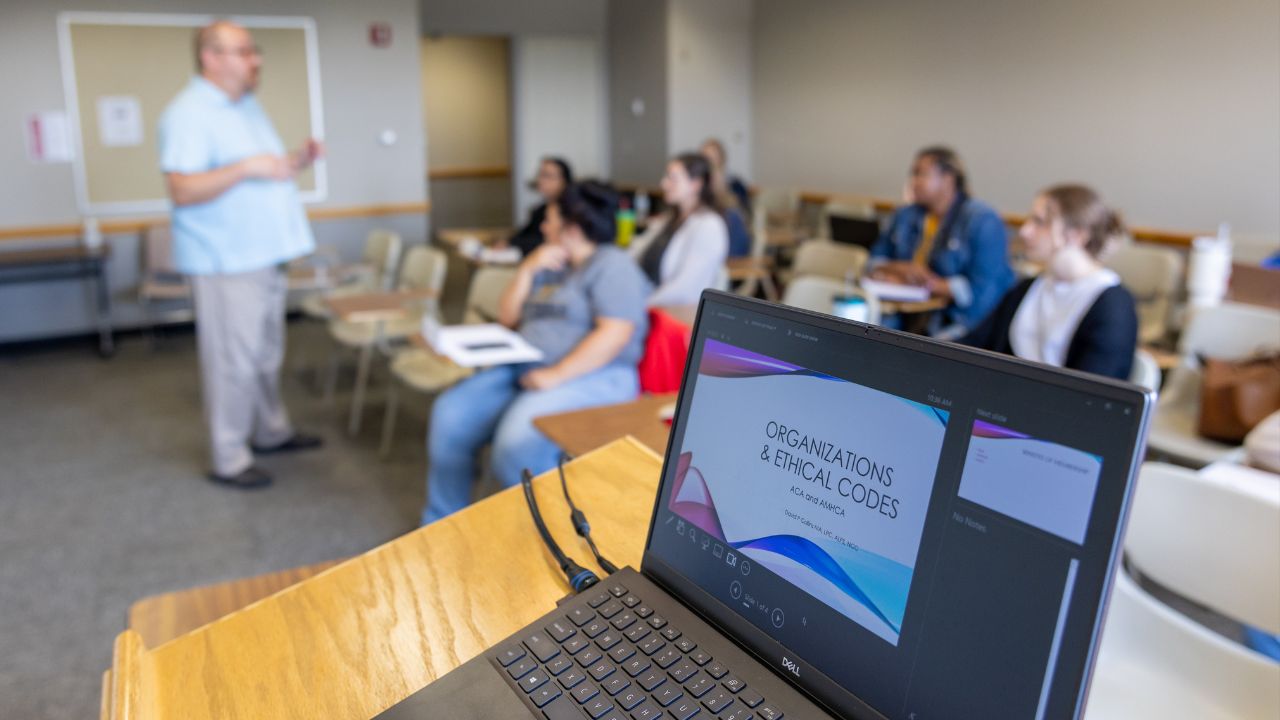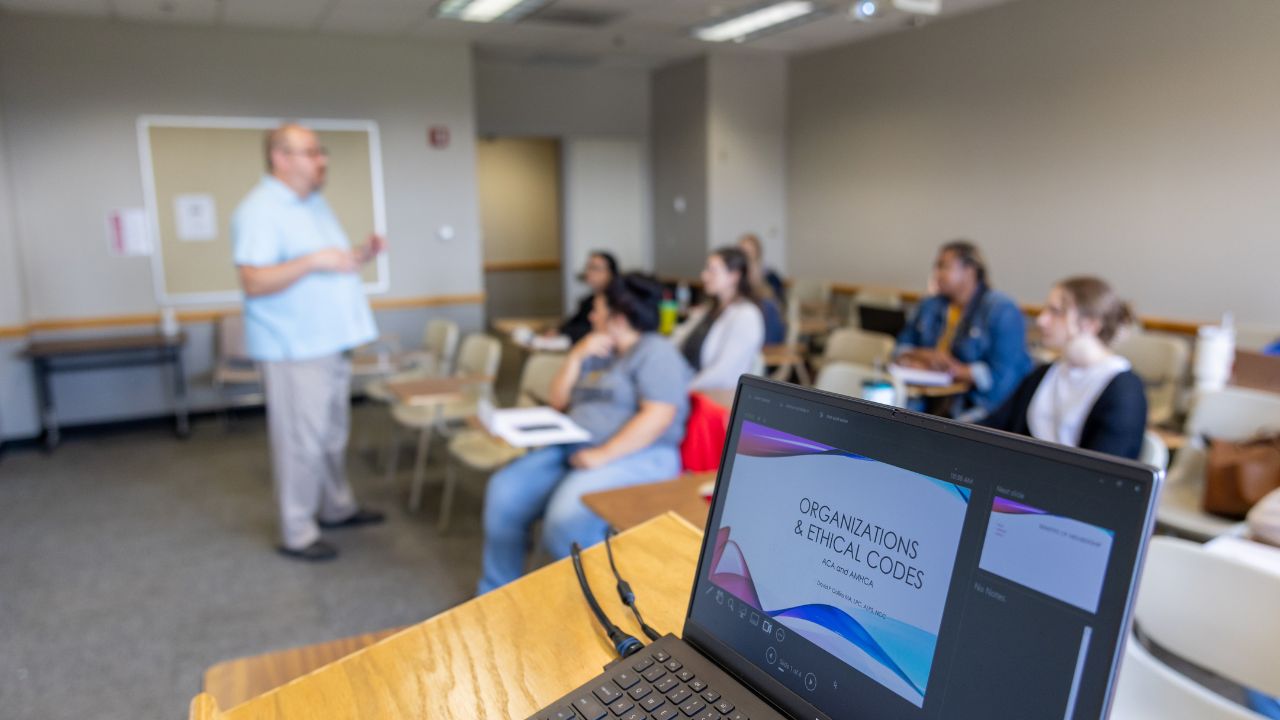
Grad school and work are challenging enough on their own, but they can feel especially overwhelming when tackled at the same time. Still, many grad school students have succeeded and even thrived under this setup—and you can as well.
These suggestions will help you balance grad school and work while keeping stress to a minimum:
Get Enough Sleep
Sleep is the foundation for everything you accomplish during the day. Without a solid night of shuteye, everything from writing papers to interacting with colleagues will feel more burdensome.
A significant body of research reveals that insufficient sleep harms short-term memory, focus, and several other functions needed for optimal performance at school and in the workplace.
Beyond dedicating a solid seven hours to sleep, you can get more rest by implementing the following strategies:
- Create an environment conducive to sleep: dark, quiet, and free of clutter or digital distractions.
- Develop a routine for winding down in the evening. Set your mobile device aside and dedicate half an hour to easy reading, taking a bath, or listening to music.
- Time your caffeine intake carefully—avoid coffee or energy drinks after 3 pm.
Exercise
Another healthy practice that holds huge implications for your grades and your performance reviews? Physical activity. Like sleep, this essential is difficult to cram into an already packed day—but without it, everything else will suffer. Exercise improves your mood, your focus, and your general physical health. Thankfully, just half an hour a day will provide huge benefits, including better sleep.
When in doubt, a simple walk may be your best bet for exercising on a tight schedule. Depending on your current living situation, you may be able to walk or bike to work or school. Otherwise, a treadmill or elliptical machine can also help.
If you need to multitask, find audiobook versions of grad school readings to listen to as you walk on a treadmill. Otherwise, a brief ten-minute break from studying will allow you to get much-needed exercise as you clear your head.
Keep Track of Deadlines
Deadline management is crucial in every walk of life, but it becomes a lot more challenging when you're juggling double the due dates. If you fail to keep on top of deadlines, you'll inevitably stress yourself out by turning in a report or assignment late—or by discovering your accidental procrastination at the last minute and then struggling to finish everything on an expedited timeline.
Busy grad students and professionals have long relied on the classic planner to stay on top of deadlines. This is helpful for some, especially as the physical act of writing important dates can provide a powerful memory boost. These days, however, many students find it easier to use mobile options such as Google Calendar to provide regular alerts. Consider setting a specific alert for checking relevant deadlines, as this will keep you aware of important dates.
Develop Time Management Strategies
Deadline awareness is just one element of time management. It's one thing to know when a paper or professional project is due, but mere awareness won't necessarily ensure that you allocate your time effectively.
Try these tips to manage your time during this busy season of life:
- Learn how to say no. Dinner parties or happy hour with coworkers may be enticing, but such outings may need to be put on hold as you juggle grad school and work. Allocate the occasional evening for fun but cut out any gatherings you feel ambivalent about or obligated to attend.
- Determine when you're productive. Some people thrive in the early morning hours, while others do their best work in the afternoon or evening. As soon as you discover your productive time of the day, block it off for studying or important work projects.
- Set mini-goals for every workday or study session. The amount of time you dedicate to a task is not always the problem, but rather, how you use that time. Short-term goals can help you make the most of every minute. For example, you can begin a session with the intention to complete an outline for your next paper.
- Learn how to effectively multitask. Certain activities can be optimized to give you extra time for studying or checking your work emails. For example, the time you spend scrolling through Facebook in line at the grocery store or in the waiting room at the dentist could be dedicated to brushing up on school material.
- Draw on areas of experience to make schoolwork more effective. For example, future papers can integrate your professional background. You'll quickly find that these take less time to write and are far more engaging.
Don't Cram
No matter how well you manage your time (or how much you neglect this essential), the urge to cram can be overwhelming as exams approach. This tendency can lead you into a negative spiral of cramming and feeling anxious, all while you neglect other important areas of your life.
As a busy professional, you simply don't have time or energy for this approach—especially as ample research indicates that it doesn't work. Rather, you'll retain more by reviewing multiple times over a longer period. This is especially effective if you take a break and sleep on new material before resuming with a second study session. What's more, cramming significantly raises stress levels, making it almost impossible to focus on the task at hand.
Use Technology Wisely
Time management has always been a struggle for grad school students, but technology makes it that much more difficult. Smartphones and laptops hold the potential to enhance productivity, but they often have the opposite effect. Those stolen seconds on social media add up quickly.
Try these suggestions to transform your devices from time wasters to helpful study tools:
- Install an application designed to record how you spend your time on your phone. Analyze the results from a few days of tracking to see where you can improve.
- Remove notifications for time-wasting apps, as these compel you to constantly check your phone.
- If possible, turn your phone on silent during study sessions. Let supervisors or coworkers know which times of day are off-limits for professional calls.
- Schedule a few minutes for mindless scrolling but set an alarm as a firm cutoff.
- Use study apps for creating flashcards, sample quizzes, or other tools to help you prepare for exams.
Combining grad school and work may be challenging, but few successes in life are more satisfying than simultaneously excelling in both areas. A few simple strategies can make all the difference, so don't hesitate to overhaul your approach to streamline your busy life.
One way to make it easier to balance life and school is to choose a flexible program. Geneva College has a number of programs designed with the needs of working adults in mind. Browse our graduate programs to find one that fits your needs and your schedule today!
For more information on how Geneva College can help you pursue your higher education goals, please phone us at 855-979-5563 or email admissions@geneva.edu.
Opinions expressed in the Geneva Blog are those of its contributors and do not necessarily represent the opinions or official position of the College. The Geneva Blog is a place for faculty and contributing writers to express points of view, academic insights, and contribute to national conversations to spark thought, conversation, and the pursuit of truth, in line with our philosophy as a Christian, liberal arts institution.
Oct 13, 2020Graduate StudiesRelated Blog Posts
Request Information
Learn more about Geneva College.
Have questions? Call us at 724-847-6505.











 Online Course Login
Online Course Login